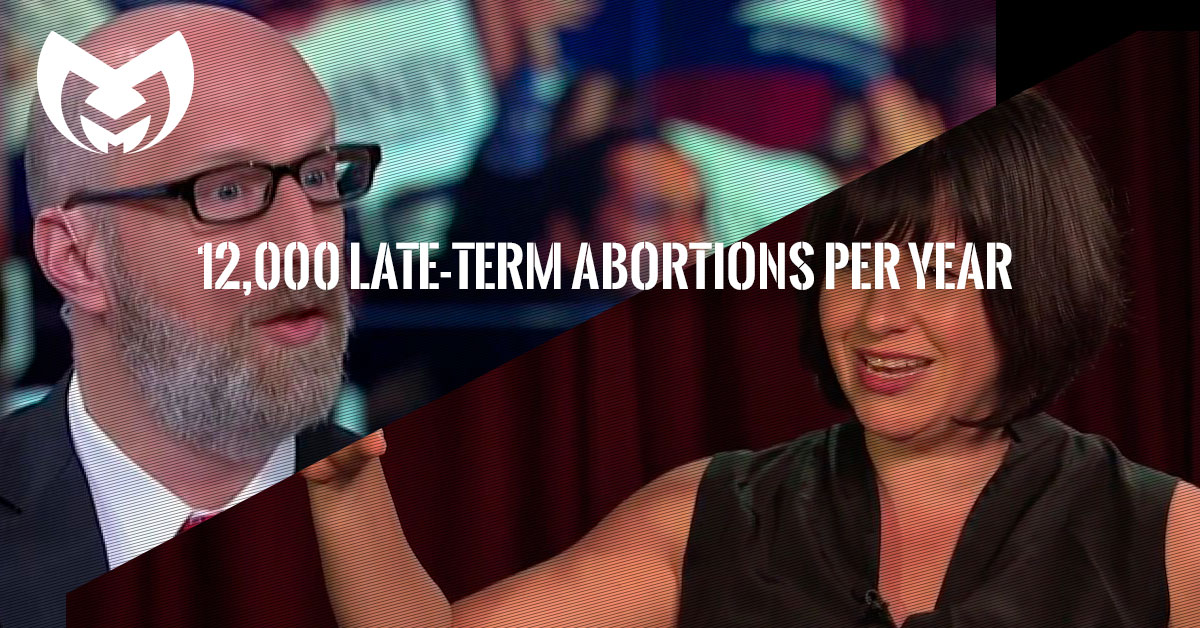The Virginia House’s tabled Repeal Act continues to generate a lot of heat in the late-term abortion debate. Specifically, over the last several weeks the necessity of late-term abortions and an alleged contempt for women are hot topics.
National Review’s David French recently came under fire in an Op-Ed from the New York Times for his criticism of the bill and what it actually means (i.e. infanticide).
Michelle Goldberg of the Times writes,
“French appears to be worried that women will seek, and doctors will perform, late-term abortions for trivial reasons. But there’s contempt for women embedded in the idea that, absent legal prohibition, someone on the verge of giving birth might instead terminate her pregnancy to avoid the brutalities of labor.”
Further, she cites Frances Kissling, president of the Center for Health, Ethics and Social Policy (and former head of Catholics for a Free Choice) in support of the idea that late-term abortions are not a reality that anyone must face:
“No matter what the law were, in real life, these things don’t happen. I am not saying that there would not be one woman out of 20 million who decided at the 33rd week of pregnancy that she needed an abortion, and I would suggest that she probably does have mental health problems. However, this woman is not going to find anyone who will do this.”
But is French really the one showing contempt for women with his concerns? Is he mistaken about the reality of late-term abortions?
He adds a little light to the conversation here (along with fellow NRO writers Charles Cooke and Kevin Williamson) by repeating his reasons as well as highlighting some of the real details of late-term abortion in the United States.
First, as to its prevalence: French notes that late-term abortion is at least—thankfully—relatively rare, citing the most recent CDC data from 2015. But this does not mean it is not still a real problem:
“[O]nly 1.3 percent of abortions occur after 21 weeks. However, given the sheer number of abortions in this country (638,169 reported to the CDC), that means there were at least 8,000 late-term abortions in the United States. As Jonah Goldberg notes today, the pro-abortion-rights Guttmacher Institute puts the number even higher, at roughly 12,000 late-term abortions per year. That’s a lot of babies dying late in pregnancy.”
So clearly—by just looking at bare statistics—the truth of the matter is that this is not some mythical, 1-in-20-million type of number.
But what about the reasons given for obtaining late-term abortions? Are they morally trivial ones? Or is it only in rare cases such as when the mother has “mental health problems” as Kissling (vaguely) asserts? Is it because of fetal abnormality? Or is it that the life of the mother is in danger?
He goes on:
“So, why do these babies die? The Guttmacher Institute has looked at the reasons for late-term abortion, and the reasons are chilling. First, the top-line finding is clear: “[D]ata suggest that most women seeking later terminations are not doing so for reasons of fetal anomaly or life endangerment.”
The link to the Guttmacher Institute study can be found here.
As noted by French and elsewhere, the 2013 study lists five profiles for women seeking late-term abortions. Most of the women interviewed fit at least one of them. These were:
- They were raising children alone.
- They were depressed or using illicit substances.
- They were in conflict with a male partner or experiencing domestic violence.
- They had trouble deciding and then had access problems.
- They were young and nulliparous.
In any case—and no matter what the justification given—to point this out is not to diminish women’s struggles nor is it to show them contempt.
It is to seek statistical clarification for the reasons women give for seeking late-term abortions beyond the heartbreaking anecdotes offered in so many of the recent articles.
Though the goal always to show kindness, sympathy, and appropriate concern, we do not want to base our conclusions on emotion rather than facts.
As French notes, “There are times when, no doubt, it’s the product of an anguished decision in the midst of a maternal or infant-health crisis, but that is not the norm.”
And these reasons are not sufficient justification to end the lives of another human being, born or unborn.
Despite the Times’ protests to the contrary, concerns are warranted. When it comes down to it, shedding light on the truth of late-term abortion is anything but an expression of contempt. It is compassionate, both for mothers and their children.



Leave A Comment